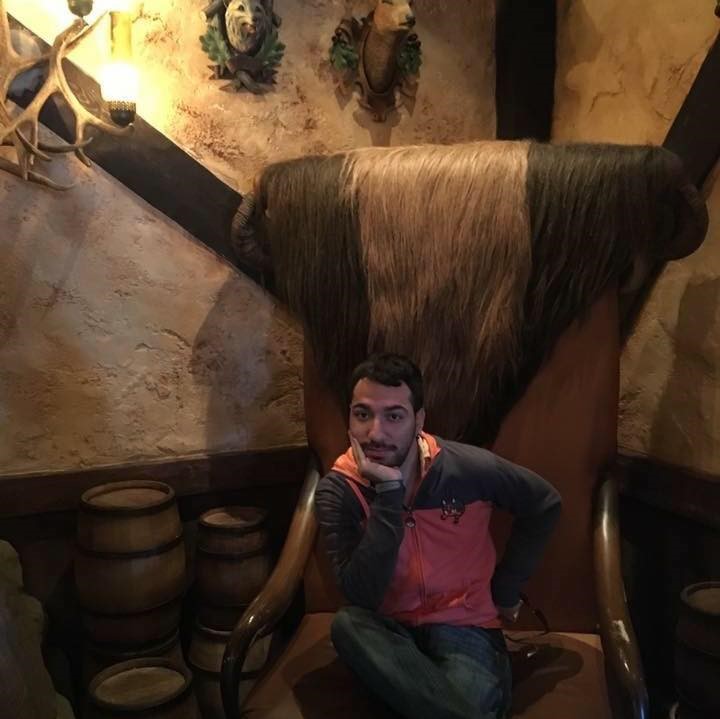Joshua Casiano

- Role: Game developer
- Location: New York City
We spoke with Joshua, a game developer working on Striped Swipers: When Booty Calls.
QRM: Can you tell us a little bit about who you are and what you do in the games industry?
Joshua: I'm just a guy trying to make childhood-me jealous. I'm an artist and animator working on my own video game to debut.
QRM: How long have you been involved in the game industry, and what projects have you worked on? What are you working on currently?
Joshua: Only, like, 2-3 years. I'm currently working on Striped Swipers: When Booty Call.
QRM: What inspired you to get started in the games industry?
Joshua: It's been my passion since I was a kid.
QRM: In what ways do you feel your experiences as a queer person manifest in the games you work on, and influence the work you do?
Joshua: I like to think it makes me not afraid to experiment and try things in my projects.
QRM: Do you have a favourite queer character—in games or media more generally? If so, what is it about them that makes them your favourite?
Question asked by @kamienw.
Joshua: I super blanked out, but X-Men's Iceman comes to mind.
QRM: Have you ever encountered roadblocks in trying to include queer characters in games? What do you think is preventing greater diversity within games?
Question asked by @dustinalex91.
Joshua: Since I'm heading my own project, no, and so far nobody's complained about the gay bar area I've put in chapter 1. I think what's stopping people is just a fear of the unknown and people not knowing that they can be the change they want to see.

QRM: Why do you think it is important that queer audiences are able to see themselves represented in the games they play, and in the developers who make the games they see? What can we do to improve the industry for queer audiences and devs?
Joshua: It's always been important to see pieces of yourself in media, because it "normalizes it". By normalizing it we also get to see the broader spectrum and flavors of the demographic, instead of just flat token characters. The only way in my opinion to fix it is to just add quality characters who have queer attributes as part of their identity, because that's how we as people are. Empty inclusions may feel great but it's only a short taste of what could be.
QRM: Have you ever mentored somebody in your role in games, or been mentored? If so, what made these experiences worthwhile for you?
Question asked by @pepelanova.
Joshua: Never as far as mentoring goes, but I've gotten advice and given advice to peers of mine.
QRM: In what ways can non-queer folk increase and support queer diversity present within games, as well as in the industry more broadly? How can we all work to support intersectional approaches to diversity, and why is this important?
Joshua: It's as simple as just being supportive. By showing that you're not afraid but actually enjoy it, developers and creators will be less afraid of including [diversity] and see that people like and are ready for it.
QRM: Is there a message that you would like to share with the queer game players, game studies researchers, and other interested folks who comprise the Queerly Represent Me community?
Joshua: You do you, and be the best you that you can. It's cheesy and simple but it's true. Don't try to be someone else because the best you can be is a second-rate them; be a first-rate you.
*
You can find Striped Swipers—the game that Joshua is working on—on their website, Twitter, and Facebook.
